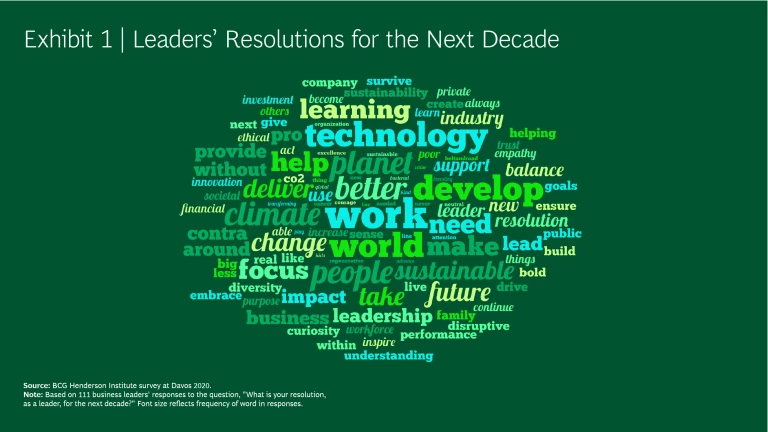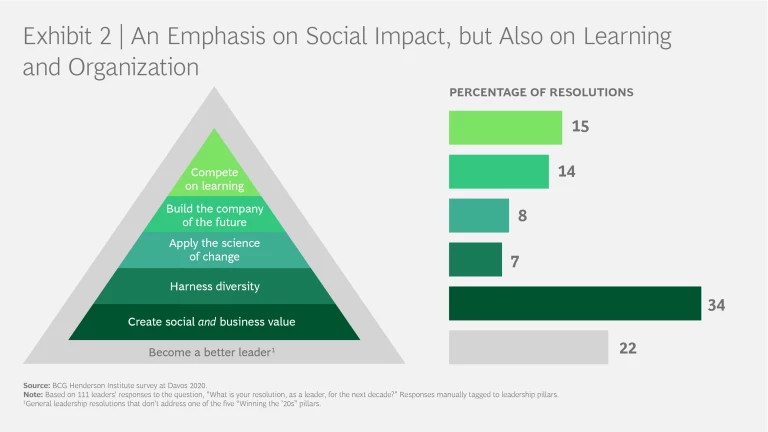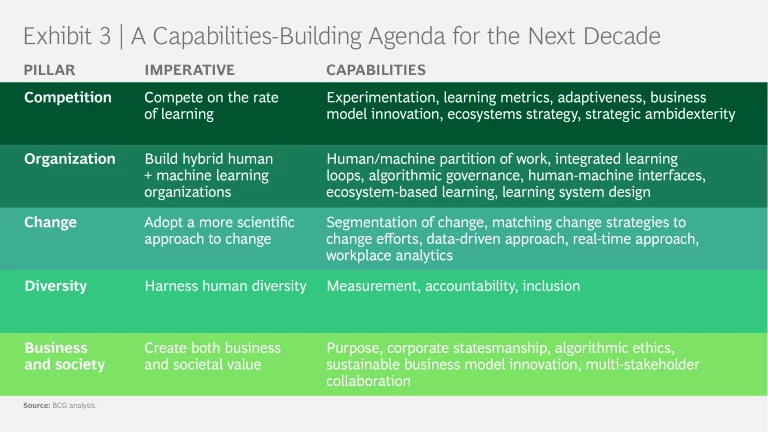As always, the annual World Economic Forum meeting in Davos had a very eclectic agenda. Nevertheless, by looking at the pattern of presentations and discussions there, it’s possible to glimpse the leadership zeitgeist, how it’s changing, and the implications.
Two years ago, the meeting in Davos focused heavily on harnessing technological innovation. Last year, this theme was overshadowed by fears of a potential economic slowdown and rising geopolitical risk. I focused my 2019 summary on resilience in the face of multiple intersecting risks.
This year, the emphasis was strikingly different. The official theme of the event was “Stakeholders for a Cohesive and Sustainable World.” Climate change and multi-stakeholder capitalism were strongly represented in the official agenda, and both themes dominated side conversations.
Fears related to the economy were diminished and overshadowed by those focus themes. And the optimism around technology was tempered by a significant degree of skepticism and mistrust concerning issues like data privacy, algorithmic ethics, and voter manipulation.
We asked more than 100 business leaders at a BCG dinner what was their most important resolution as a leader for the decade ahead. The biggest emphasis was on societal and planetary issues, mirroring the official program. (See Exhibit 1.)
In our framework for Winning the ’20s , an agenda for competing successfully in the new decade, we suggest five imperatives for corporate leaders: 1) Competing on learning in a fast-changing world, 2) Building “bionic” organizations that combine humans and machine learning technology synergistically, 3) Applying a more scientific approach to change management, 4) Harnessing human diversity for innovation and resilience, and 5) Optimizing business for both societal and business value. Among these, the major emphasis of leaders’ resolutions was on pillar 5 (social and business value), with a secondary emphasis on pillars 1 (competing on learning) and 2 (building bionic organizations). (See Exhibit 2.)
It’s clear that the Davos community has heard and embraced the widespread concerns about climate change: there was very little denial or obfuscation. The diagnosis and the change imperative were clear, and a range of specific solutions was discussed. The prevailing sense was that the technologies needed are within reach. The major gap was how these will be implemented. There is no global government to impose solutions, and the interests of developed and developing nations are divided, as are the interests of the US and the rest of the developed world. Voluntary, self-policed moves by individual companies will likely be insufficient and too slow. We now need innovation on how to mobilize and collaborate on a massive scale. Indeed, this is the hardest aspect of the climate change problem.
On multi-stakeholder capitalism, there was enthusiasm for considering the interests of all relevant stakeholders. However, the practicalities remain to be worked out. Some helpful steps are under way, such as an ongoing WEF initiative to develop metrics, but there are a number of open questions, such as how to balance the interests of different stakeholders and how to tailor the approach to each company’s specific situation.
Compared with previous years, leaders’ concerns and aspirations have expanded both spatially (from companies and industries to business ecosystems, societies, and the planet) and temporally (from shorter term to longer term). This is quite different from the narrower traditional focus on maximizing returns to shareholders and will require new externally focused capabilities of influence and collaboration.
Synthesizing our Winning the ’20s framework and insights gleaned in Davos, we can identify key components of a capability-building agenda for companies in the new decade. (See Exhibit 3.)
The leaders who manage to guide their organizations through these challenging, unfamiliar, and uncertain waters will be those who understand learning as well as execution, collaboration as well as competition, influence as well as control, and compassion as well as determination.










